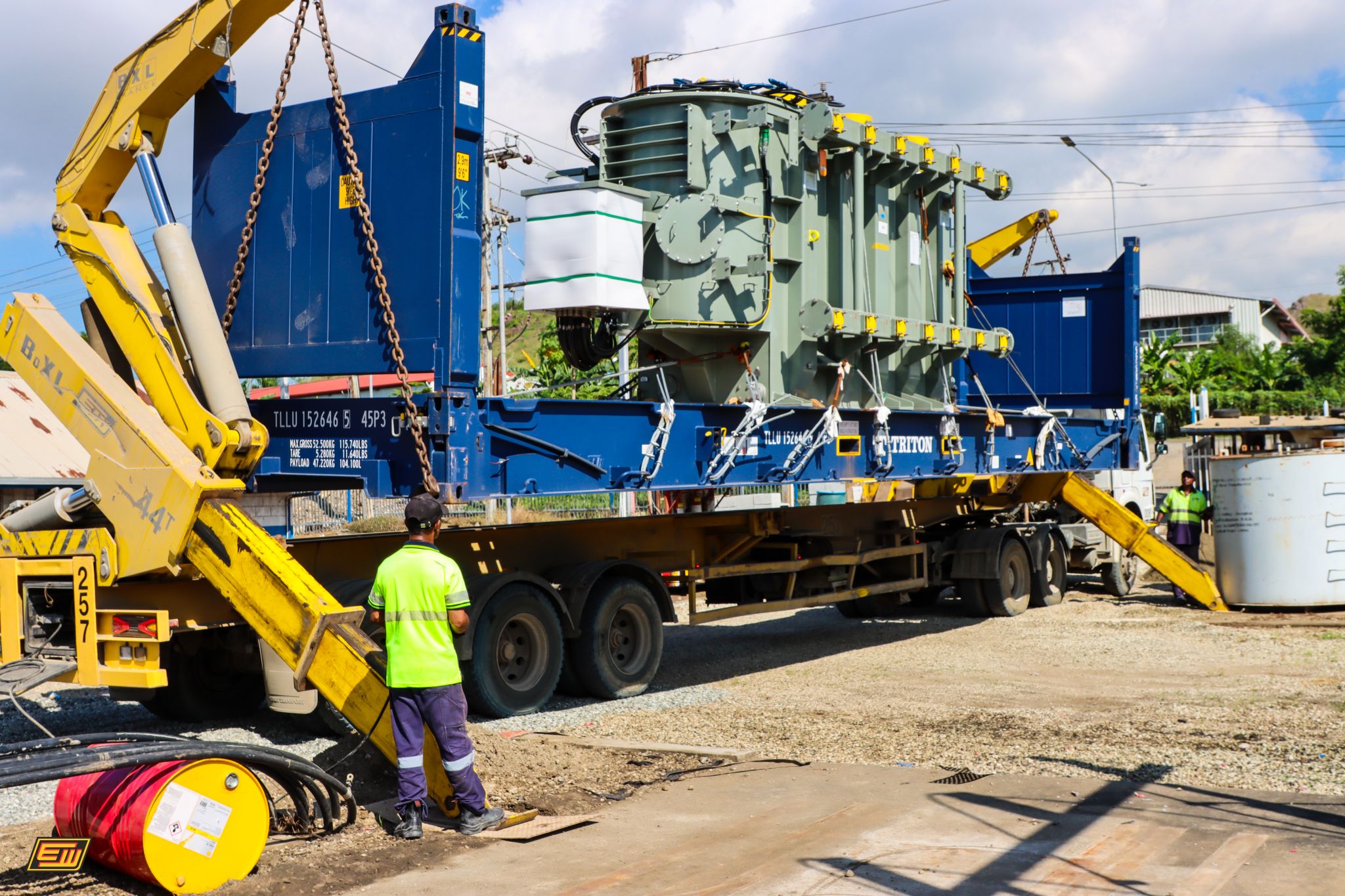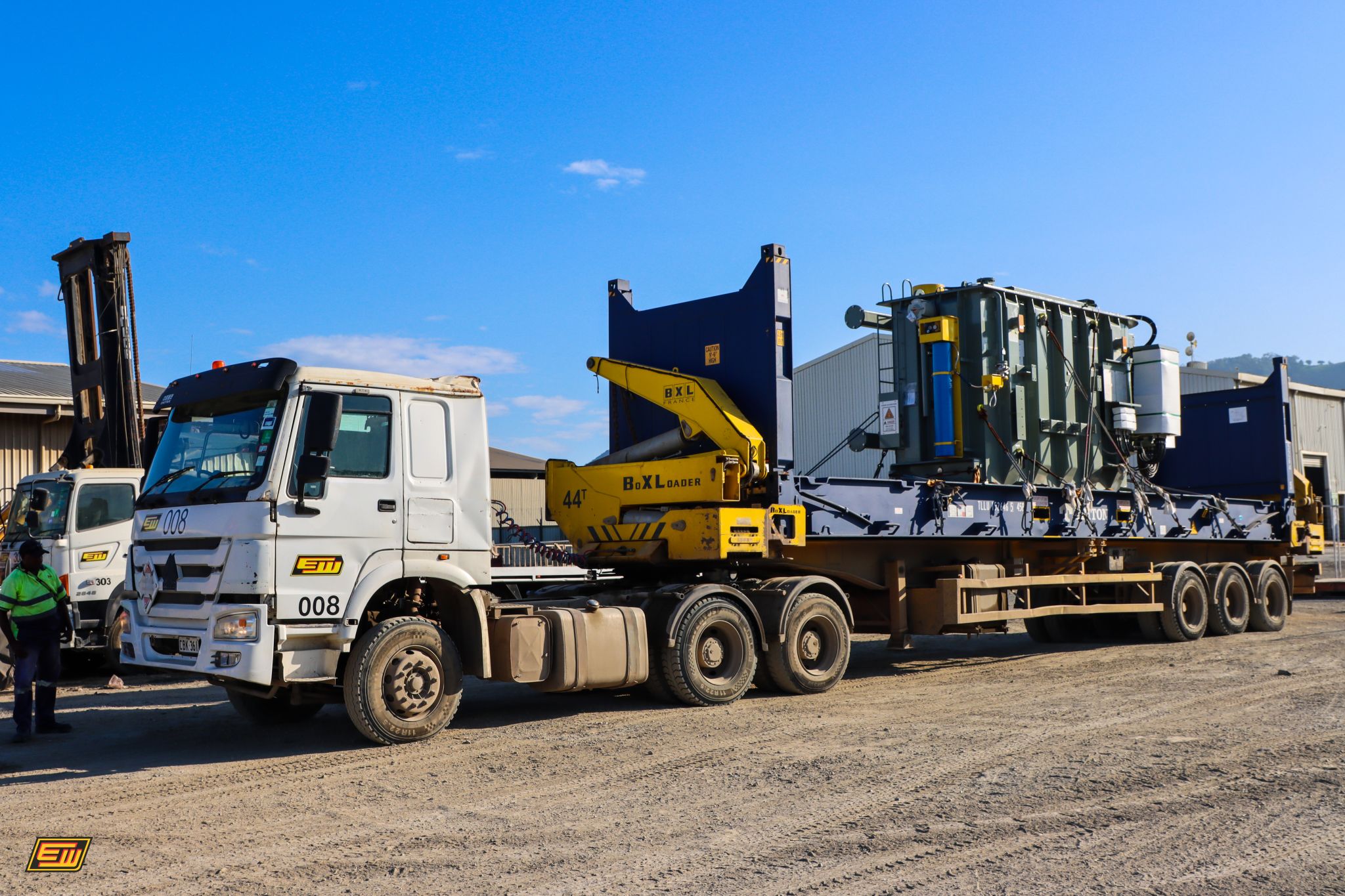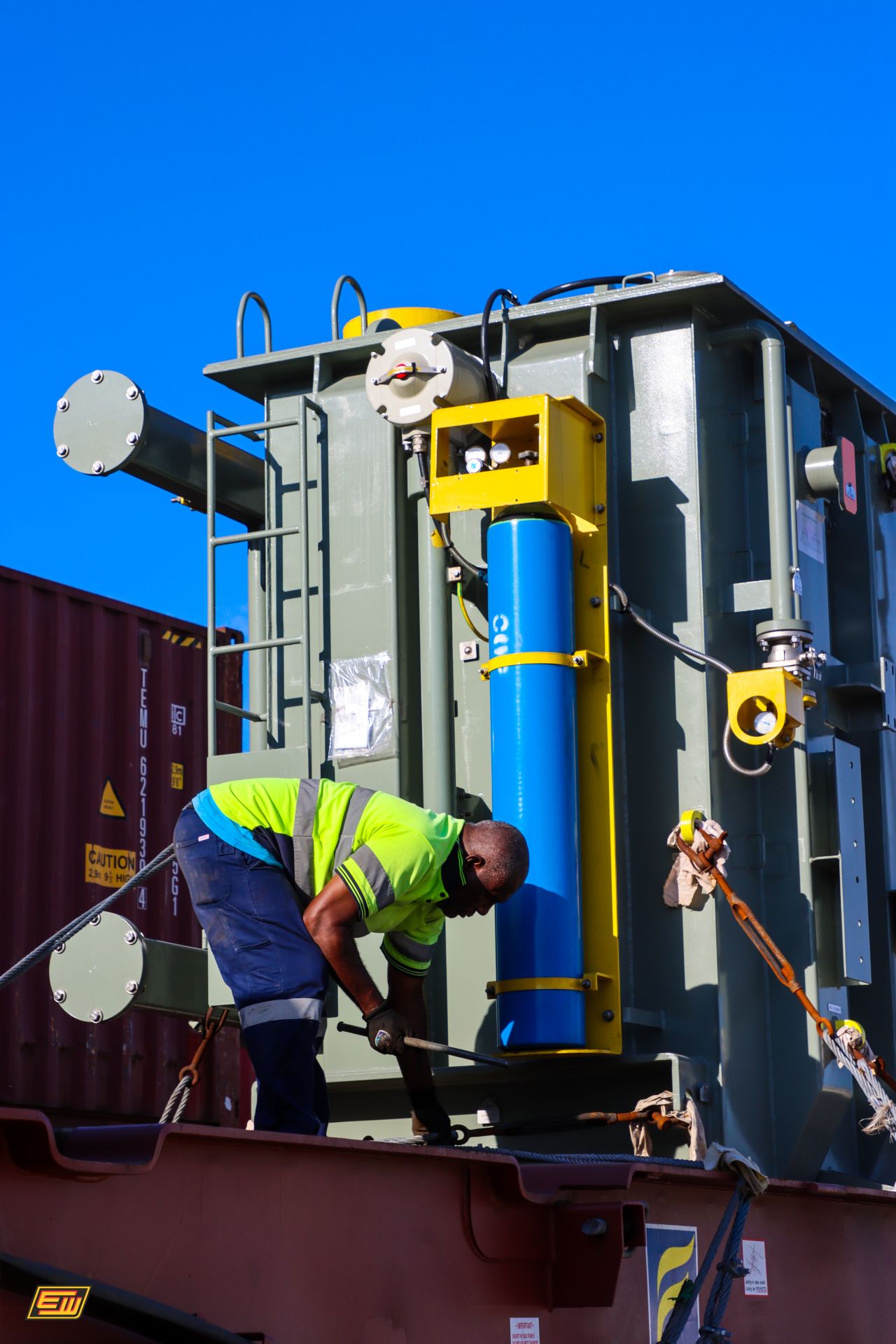News in Brief
Heavy Load Movement: Waigani ➡️ 8 Mile
19 June 2025
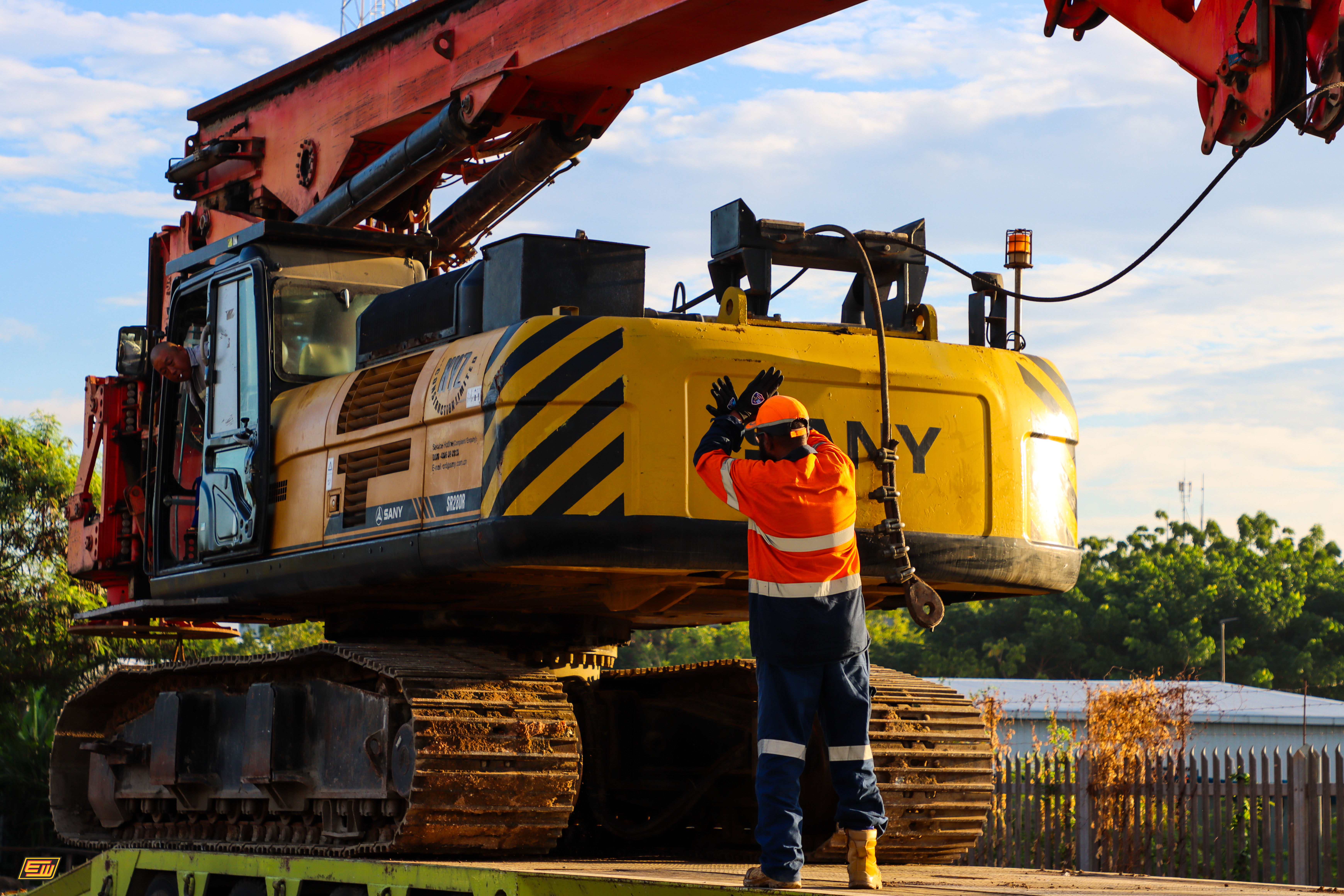
EastWest Transport recently relocated an 18-meter long, 80-ton rotary drilling rig along with its steel tube pile! This massive move was meticulously planned and executed in two separate trips.
Why two trips? Because safety and compliance are our absolute top priorities! Moving both together would have exceeded our trailer's load limit. To give you an idea of the weight, 80 tons is roughly equivalent to 13 adult elephants.
Ahead of the delivery, our team carried out a full route assessment and site inspection. We also performed detailed safety checks and rigorous load securing procedures to ensure everything was transport-ready and secure.
Here’s how we ensured a smooth and safe delivery:
✅ Client site safety inspection completed in advance
✅ Full route assessment completed in advance
✅ Thorough pre-checks before the move
✅ Delivered early in the morning to avoid traffic congestion
Our impressive 88-ton low loader was paired with a powerful 420-horsepower prime mover – a combination engineered for heavy-duty performance and reliability on even the most demanding moves like this one.
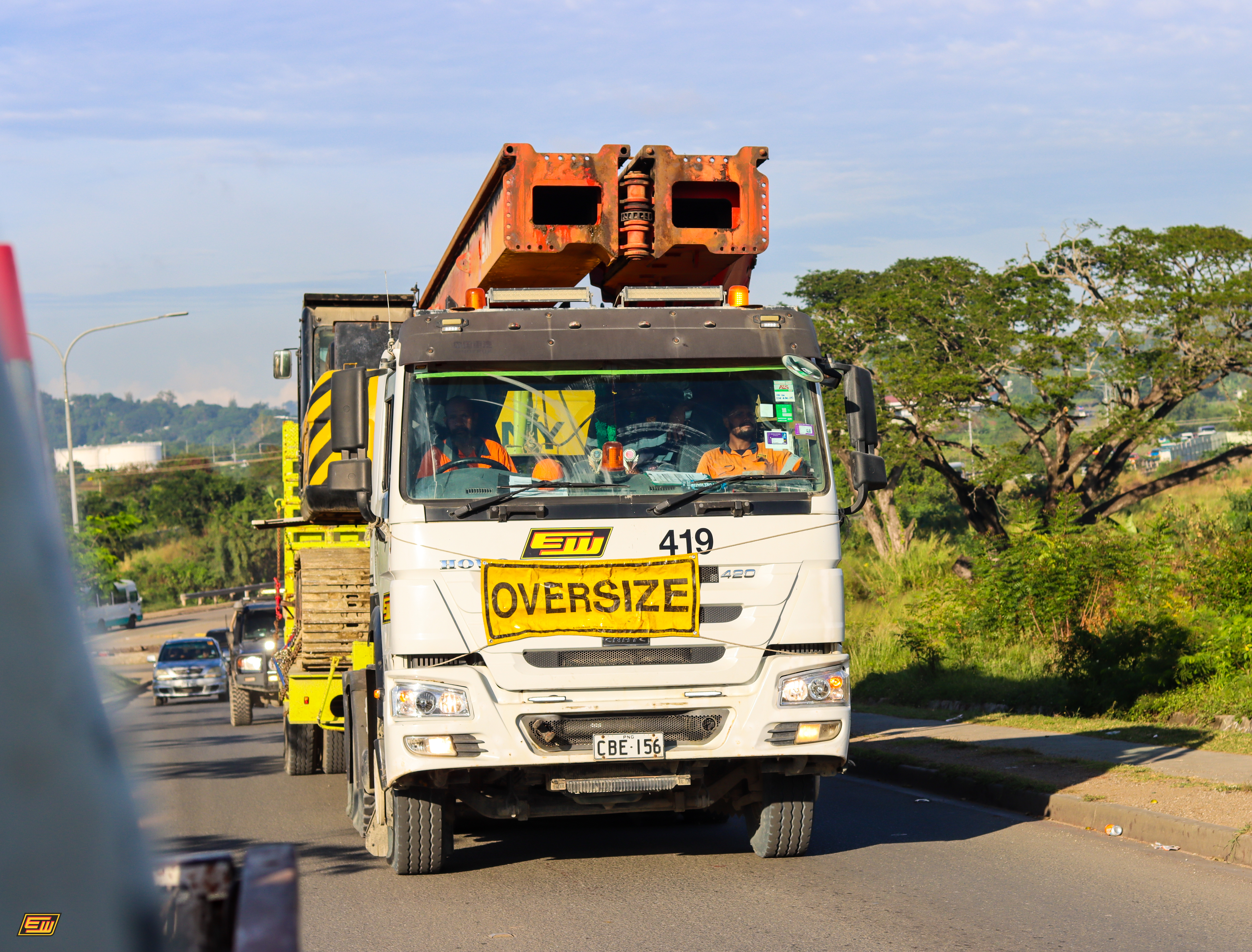
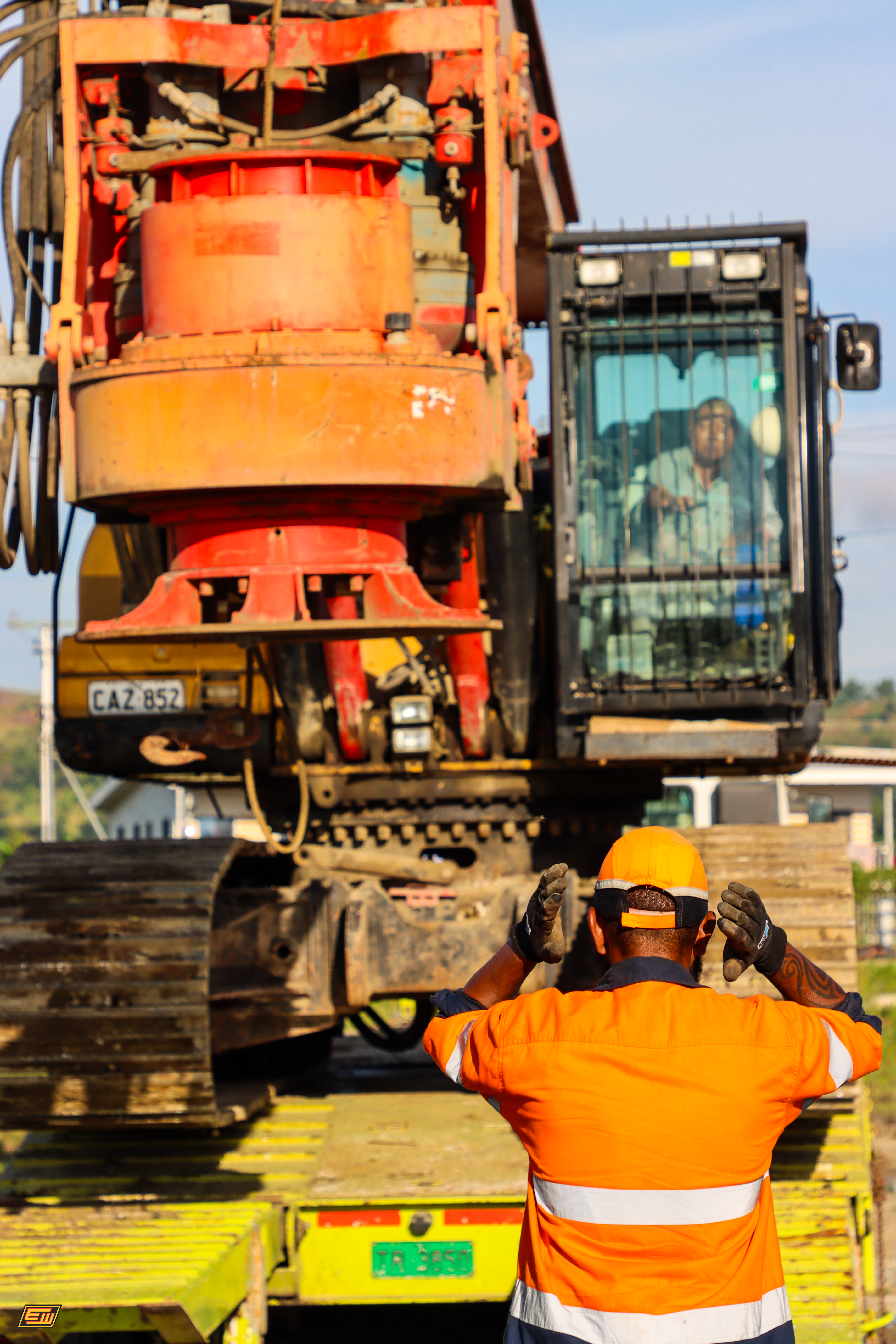
Inspiring Change Beyond the Shoreline - because every ripple matters!
19 June 2025
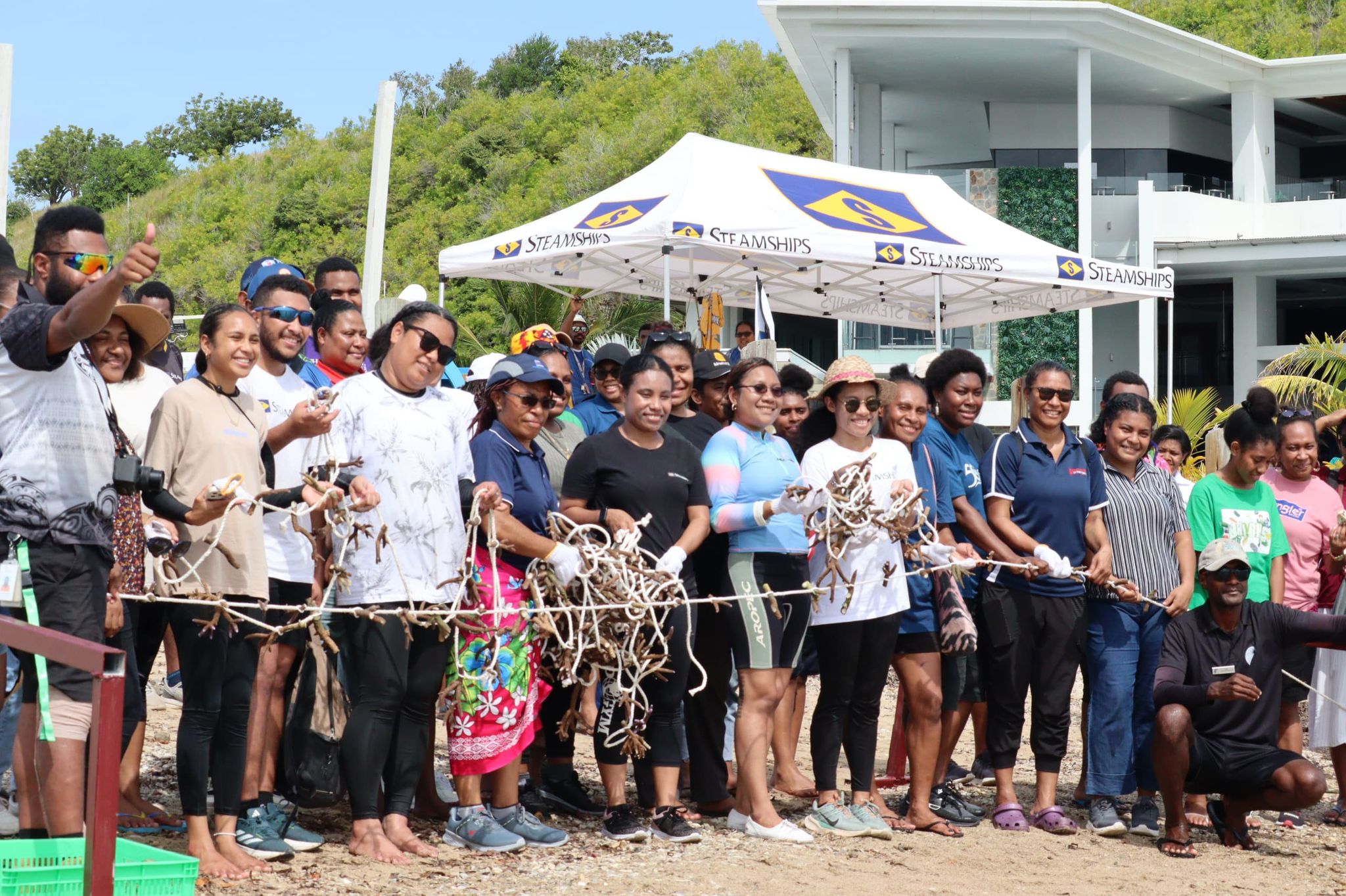
We often underestimate the power of small actions, but when it comes to protecting our planet, they truly add up. Whether it's restoring coral reefs, planting mangroves, or making sustainable choices, each step contributes to a healthier ocean, stronger coastlines, and a better future for all.
On Saturday, 14th June 2025, Steamships partnered with Loloata Island Resort (Loloata) to celebrate World Environment Day, World Oceans Day, and World Coral Triangle Day through a hands-on mangrove and coral planting initiative. Volunteers from our corporate office and business units, including Consort Express Lines, East West Transport, JV Ports, Pacific Towing, Coral Sea Hotels, Grand Papua Hotel, Marriott Executive Apartments, and Pacific Palms Property, came together to make a meaningful impact.
Together, our team planted nearly 200 corals, 40 mangrove seedlings, and 14 mangrove propagules, contributing to Loloata’s broader mission to:
• Restore damaged reefs through coral propagation
• Reforest coastlines to boost resilience and protect marine habitats
• Provide essential breeding grounds for marine life
• Promote environmental awareness and inspire community action
This initiative not only supports ecosystem restoration but also strengthens our collective commitment to sustainability and education, ensuring that the message of conservation reaches beyond the shoreline.
Mangroves: Guardians of the Coastline
Mangroves are remarkable coastal trees and shrubs that thrive in salty, tidal waters where few other plants can survive. Found along tropical and subtropical coastlines, they form dense forests that are vital to both marine and human life. Mangroves serve as nurseries for marine species, providing shelter and breeding grounds for fish, crabs, and other sea life. Their tangled roots offer protection from predators and strong currents, helping young marine life grow and thrive.
These ecosystems are also natural coastal defenders; their roots stabilize shorelines, reduce erosion, and act as buffers against storm surges and tsunamis. In addition, mangroves are powerful carbon sinks, storing up to four times more carbon than tropical rainforests, making them key players in the fight against climate change. Mangroves support local livelihoods through fishing, tourism, and traditional uses, while also improving water quality by filtering pollutants and trapping sediments.
_.jpeg)
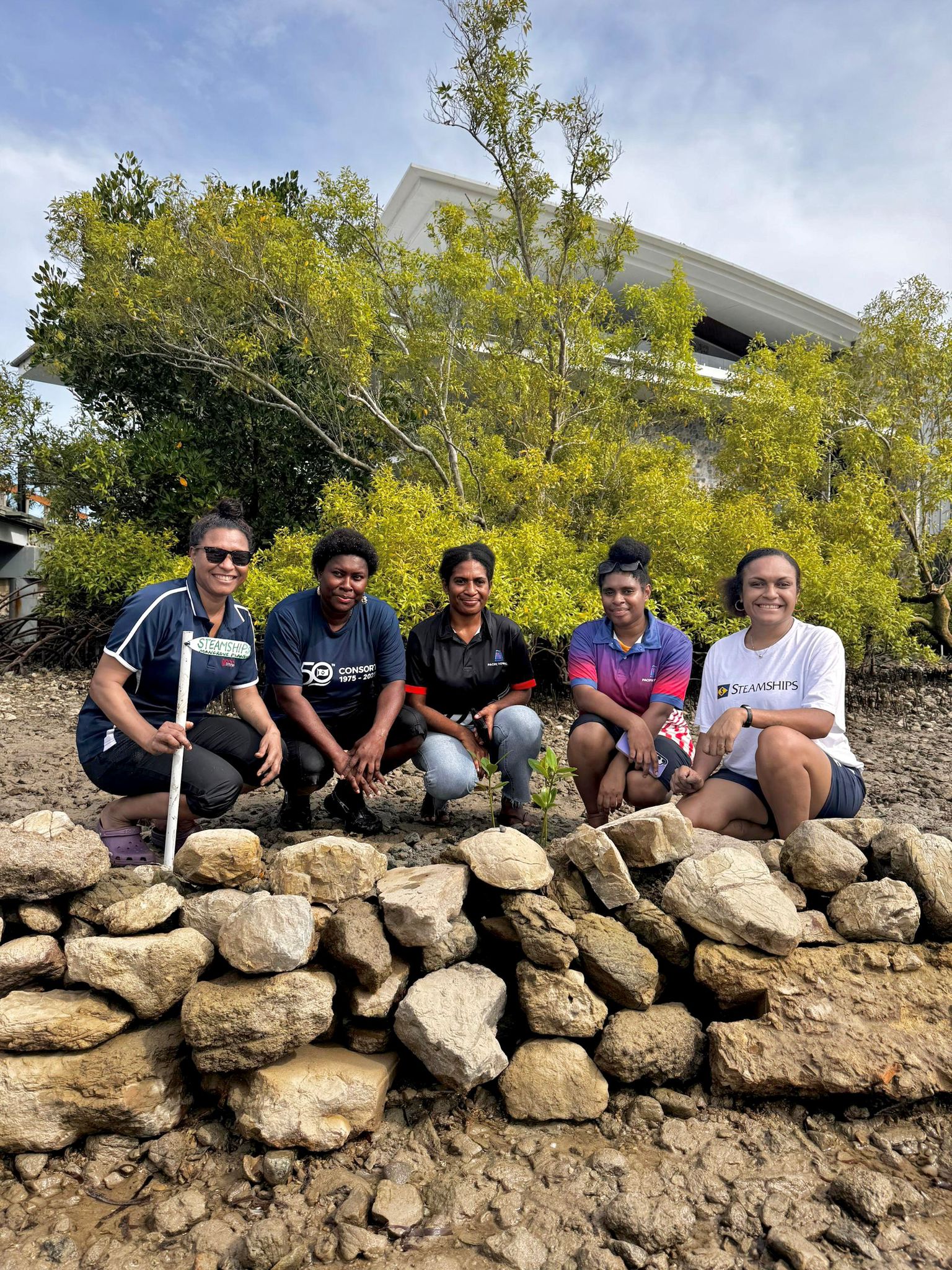
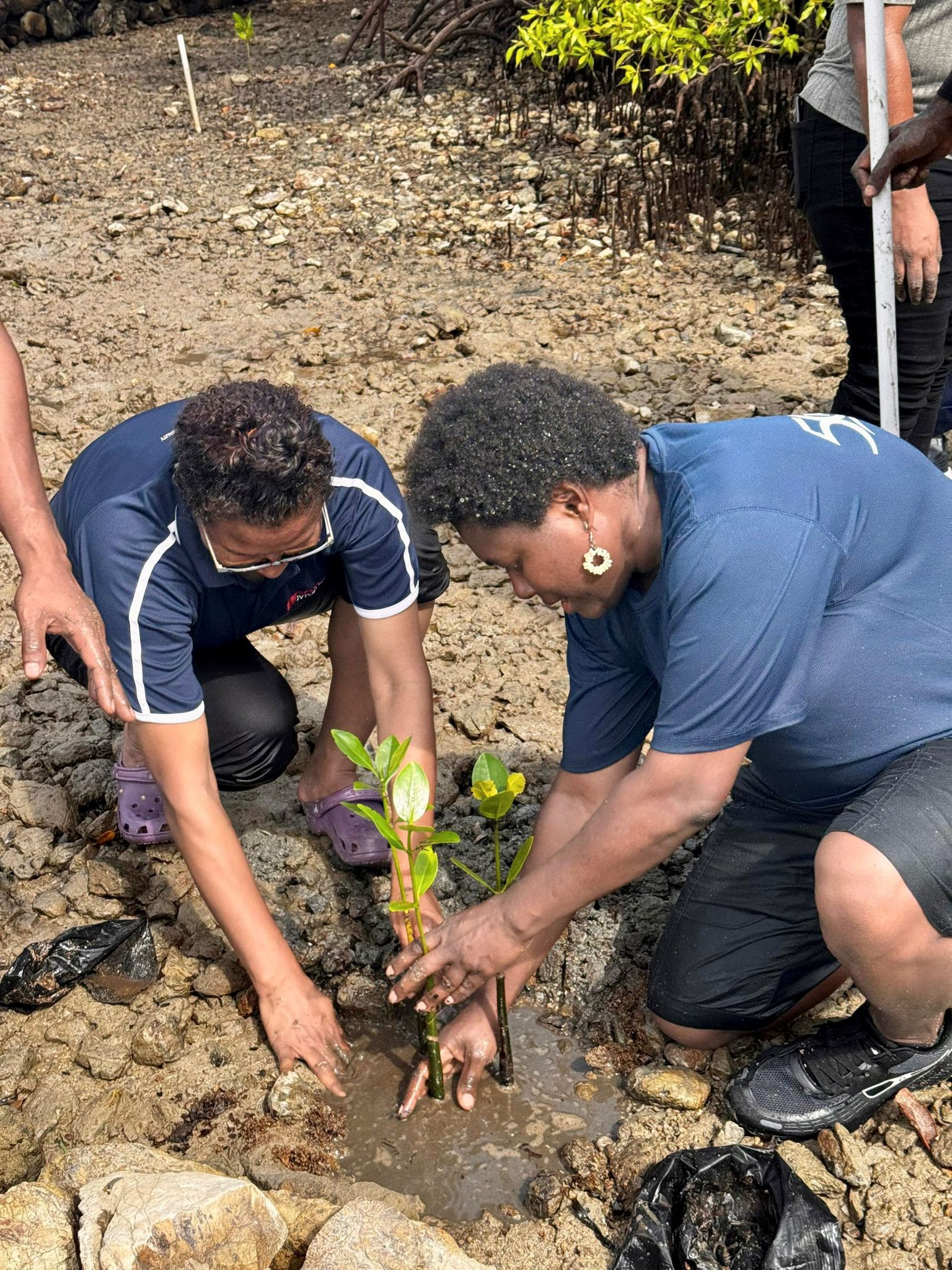
Coral Reefs: Essential Ecosystems of the Ocean
Coral reefs are among the most diverse and valuable ecosystems on Earth. Though they may look like colourful rocks, corals are actually tiny animals called polyps that build reef structures over time. These reefs support approximately 25% of all marine life, providing shelter, breeding grounds, and food for thousands of species.Beyond biodiversity, coral reefs play a crucial role in coastal protection, acting as natural barriers against erosion, waves, and storm surges. They also sustain the livelihoods of thousands of communities along PNG’s coastlines and millions more people globally through fishing, tourism, and cultural practices. Coral reef organisms are being studied for medical breakthroughs and treatments for infections.
Additionally, corals contribute to the global carbon cycle, helping regulate carbon dioxide levels in the ocean. Efforts like coral and mangrove planting are vital to restoring these ecosystems and ensuring their survival for future generations.
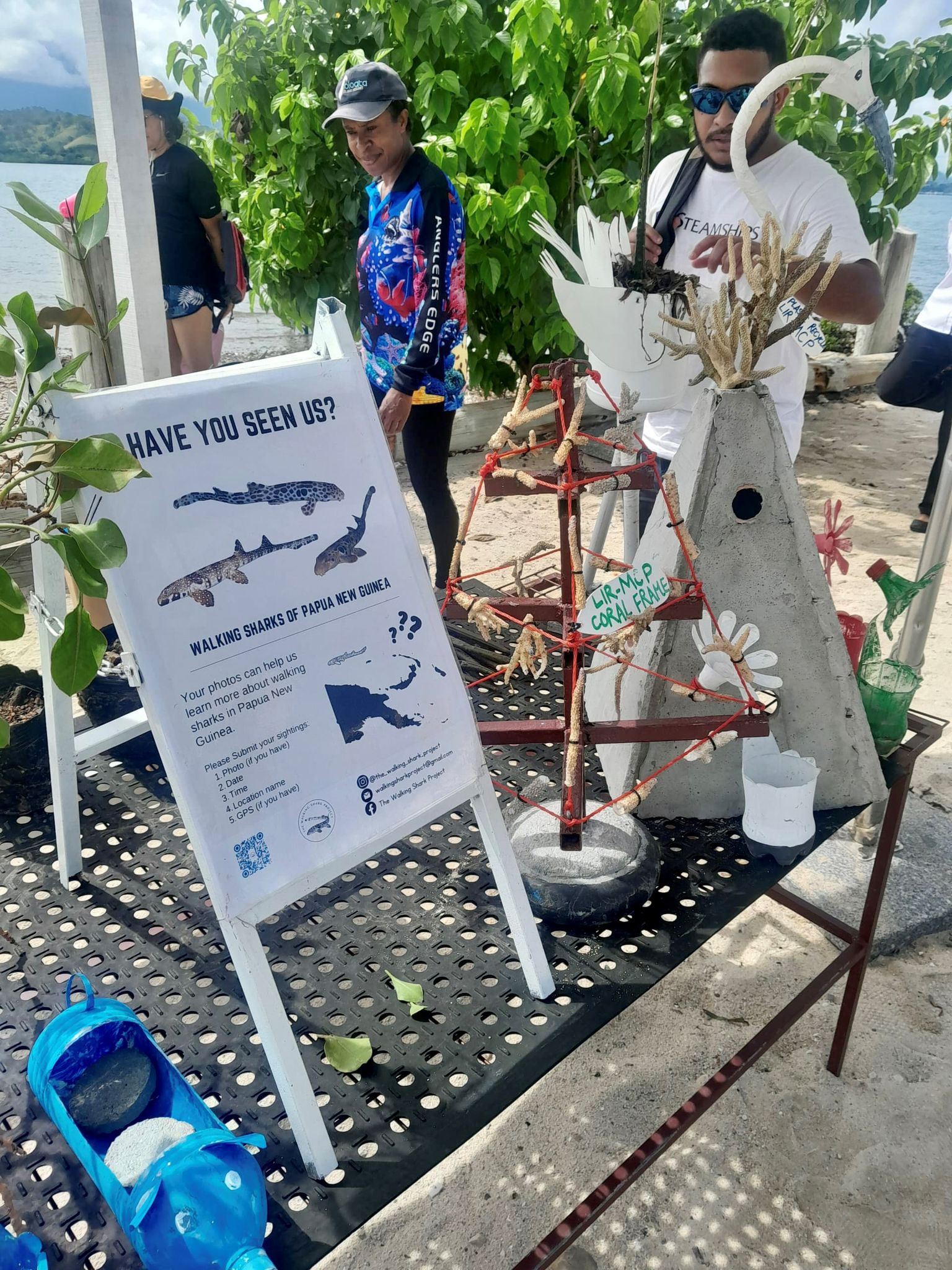
_.jpeg)
Reflections from Our Volunteers
While the science behind coral and mangrove ecosystems is powerful, it’s the personal experiences that truly bring these efforts to life. For many of our volunteers, this initiative was more than just a planting activity – it was a chance to connect with nature, learn something new, and contribute meaningfully to the environment.
Here’s what some of our team members had to say about their experience:
"This was my first time planting coral and mangroves, and it was such a meaningful experience. I learned new things that I can take back to my village to help restore and grow more of these vital ecosystems. I’m proud to have played a small part in giving back to nature." ~ Paul Baker, Pacific Palms Property
“Planting coral and mangroves at Loloata Island was a deeply rewarding experience. Immersed in the island’s vibrant marine environment, I had the opportunity to contribute to vital conservation efforts aimed at restoring coastal ecosystems and for our future's sustainability. Working alongside passionate volunteers and Loloata's marine experts, I learned about the importance of coral reefs and mangroves in protecting shorelines and supporting biodiversity. The hands-on process of planting, combined with the serene beauty of the island, made the experience both educational and inspiring. It was a meaningful step toward preserving the natural heritage of Papua New Guinea”. ~ Richard Wallet, Ela Beach Hotel
"I'm so grateful for the opportunity to be part of this program – it was my very first as an employee of Steamships - Coral Sea Hotels - Grand Papua Hotel. I never imagined I’d actually get hands- on experience planting mangroves and preparing coral for the sea. Back in high school, I only learned the theory, and that was about eight years ago. Getting to do the practical side now was not only fun but also incredibly rewarding. This program was a great learning experience for many of us, and I’m sure my colleagues enjoyed it and learned just as much as I did." ~Peggy Kassman, Grand Papua Hotel
"I felt truly privileged to be part of the Steamies mangrove and coral planting activity. It was my first time doing anything like this, and I gained a deeper understanding of the differences between the two. Coral planting was the more challenging task – it required teamwork and strength, especially during the first technique with the ropes. Mangrove planting had its own timing – we had to wait for low tide in the afternoon before we could begin. These were two key takeaways for me. I also came to appreciate just how vital mangroves are: fish populations would decline significantly, as these coastal forests are critical for their reproduction and shelter. I'm really glad I volunteered and played a small part in supporting our marine environment." ~Raga Vali, Joint Venture Ports Service
Reflecting on the “Developing Low-Carbon Transport Pathways in PNG” Workshop
16 June 2025
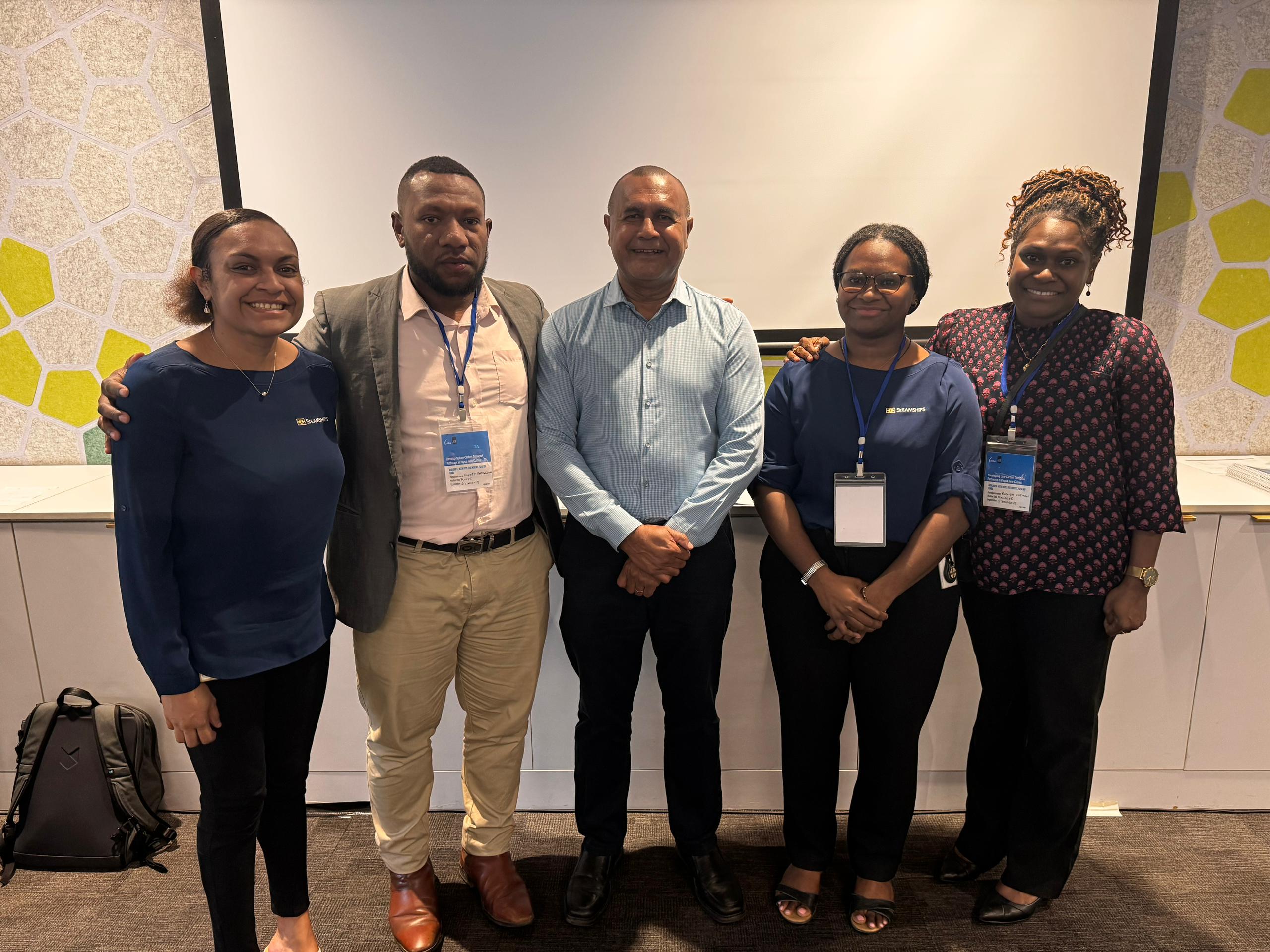
Steamships SD team with Peter Aitsi
By Kurere Matanzana
Steamships Sustainable Development Team had the privilege of participating in an insightful and forward-thinking workshop on ‘Developing Low-Carbon Transport Pathways in PNG’, hosted by the Asian Development Bank (ADB) and facilitated by Castalia. The session brought together key stakeholders, regulators, and policymakers in a collaborative space to envision, discuss and plan a more sustainable and resilient transport future for Papua New Guinea
A standout theme from the workshop was the power of foresight thinking—using backcasting to envision a desirable future and work backward to identify the actions needed to achieve it. This approach inspired robust discussions and creative solutions tailored to PNG’s unique geography and developmental context.
One of the most exciting prospects discussed was the use of drones and other emerging low-carbon technologies. These tools hold immense potential for PNG. In a country where road connectivity is limited and communities are often remote, drones can revolutionize access—from delivering essential medical supplies to enabling real-time environmental monitoring and data collection. When integrated with solar-powered charging infrastructure, they become even more sustainable and climate-resilient.
Moreover, the workshop encouraged us to think beyond just drones—to consider a future mobility ecosystem that is user-friendly, affordable, and environmentally sound. This includes electric bikes, low-emission marine vessels, and clean public transport networks, all powered by PNG’s abundant renewable energy sources.
The workshop concluded with a pitch session where participants presented actionable low-carbon transport initiatives to a distinguished panel of potential funders—including one of our board members, Mr. Peter Aitsi, ADB Country Director Said Zaidansyah, a Global Green Growth Institute Representative, and Acting CEO of Road Traffic Authority, Mr. John Avira. It was inspiring to witness the level of enthusiasm and commitment among all participants toward building a greener, more inclusive transport system in PNG.
What we’ve learned is clear: PNG is not only ready but capable of piloting future-ready, low-carbon transport initiatives. The time is now to build coalitions, mobilize innovation, and invest in scalable technologies that reduce our carbon footprint, support economic inclusion, and protect our unique environment for generations to come.
Let us act boldly—because the future of transport in PNG depends on the choices we make today.
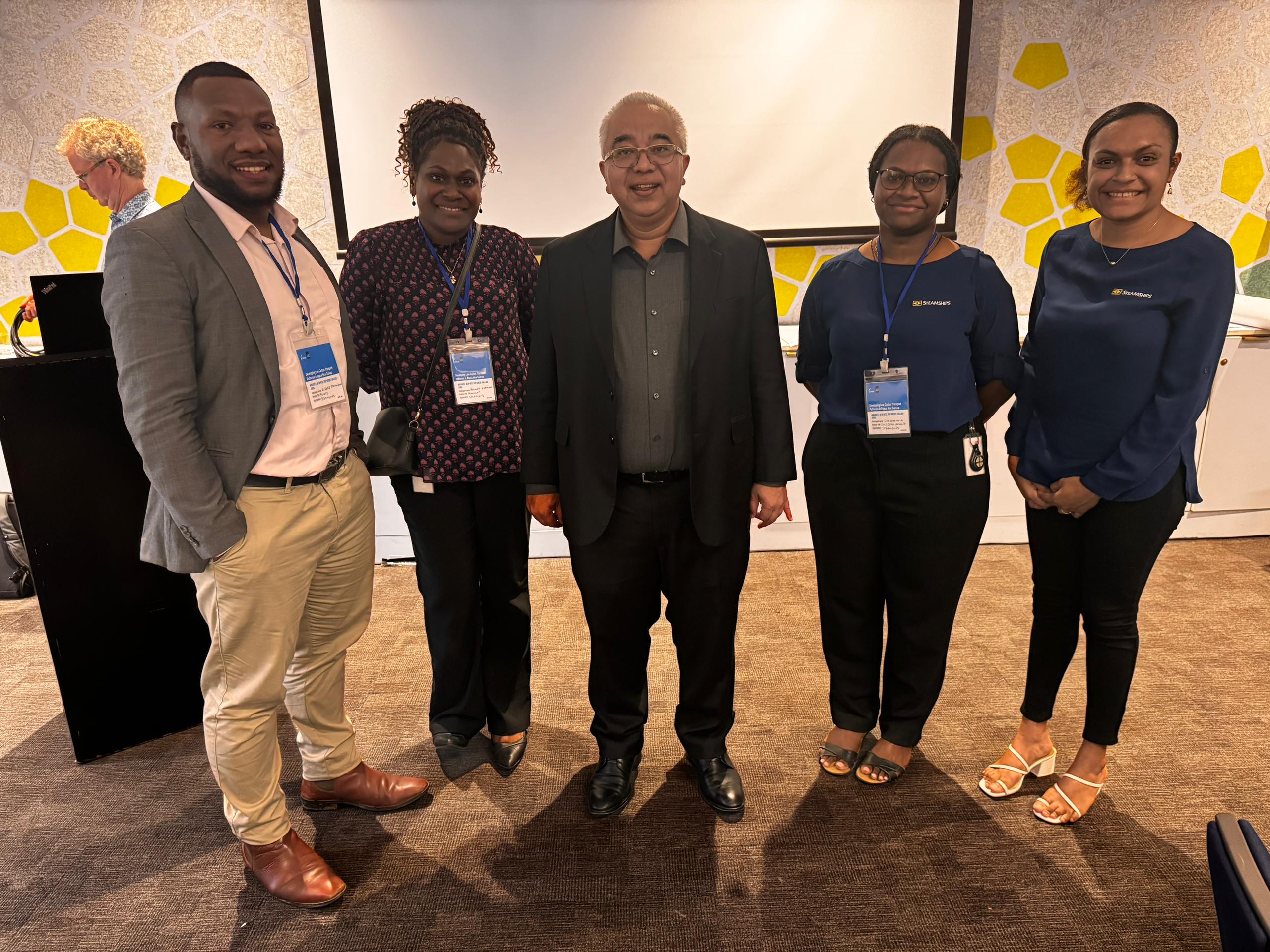
Steamships SD team with ADB Country Director Said Zaidansyah
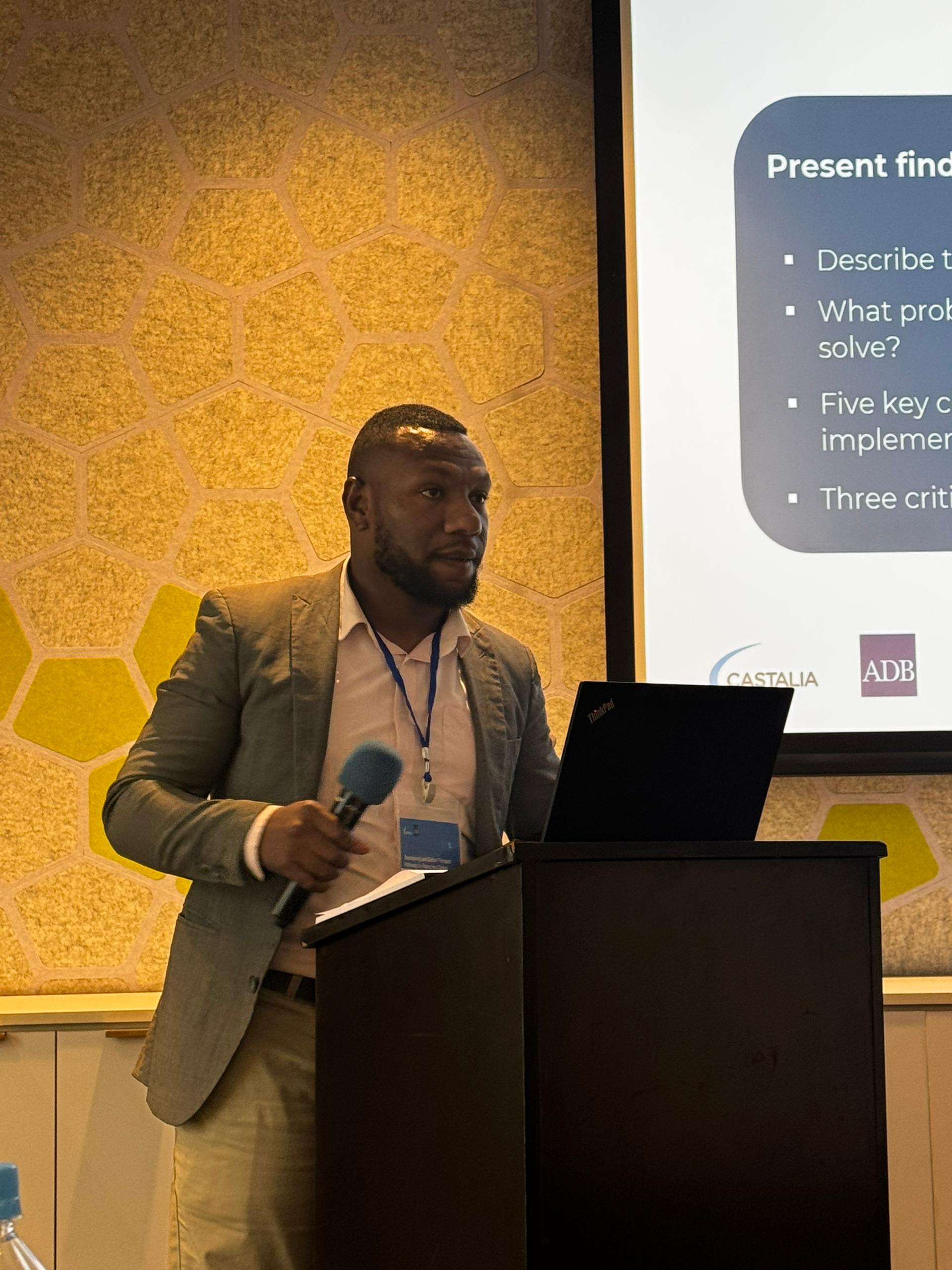
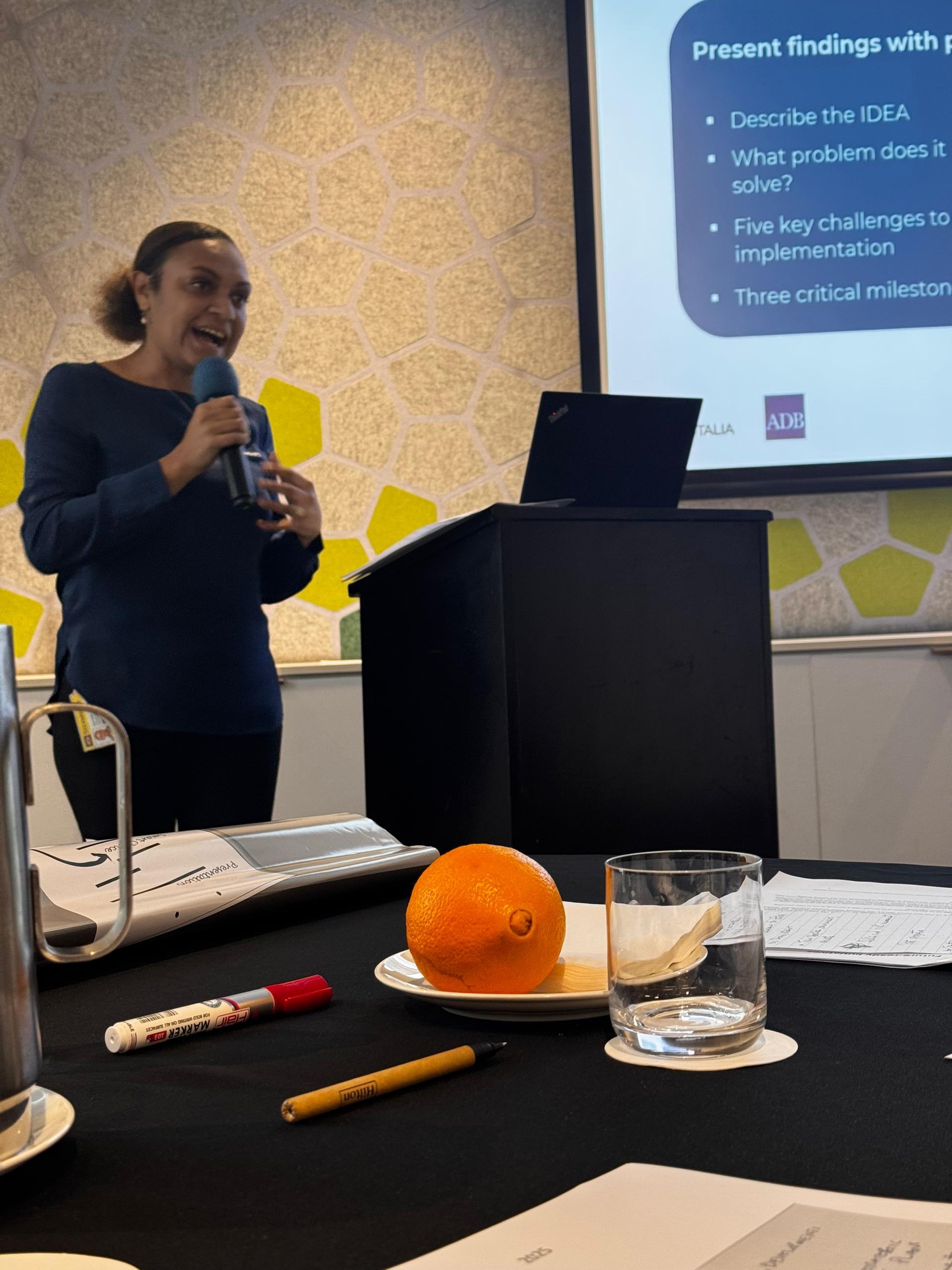
Kureue Matanzana and Ryna Asiba presenting their 5 minute pitch to explore future low-carbon transport scenarios and initiatives to a panel of potential funders
EastWest Transport delivers to Bomana and Kanudi Substations
13 June 2025
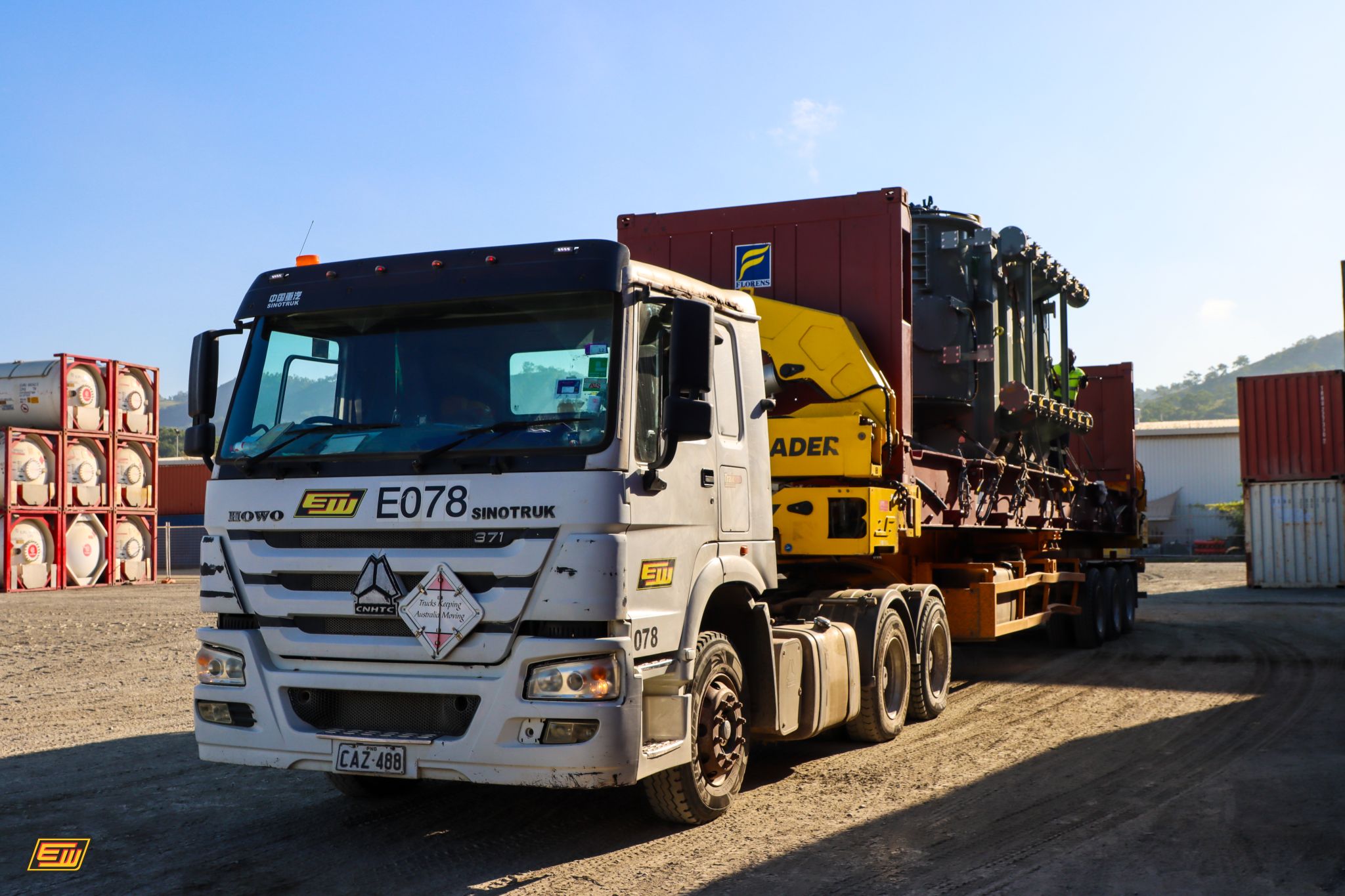
Last month, our 40ft side loaders successfully delivered two power transformers to two key sites at PNG Power Limited's Bomana and Kanudi Substations in Port Moresby. These new units will replace aging infrastructure and help reduce the load on several key substations across the power network.
The Bomana Substation plays a vital role in Port Moresby’s power infrastructure, supplying electricity to essential facilities such as the Mt Eriama Water Treatment Plant a critical component of the city’s water supply system.
As part of our commitment to safety and operational excellence, pre-delivery inspections were carried out by our HSSE team, ensuring both the public and cargo safety throughout the transport and offloading process.
We’re proud to support these important infrastructure upgrades and reaffirm our dedication to delivering safe, efficient, and reliable transport solutions that contribute to Papua New Guinea’s ongoing growth and development.
